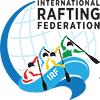Today marks International Mountain Day and with it, the IRF has commited to the International Olympic Committee’s Mountain Sports Sustainability Pledge. The IRF is one of twelve organisations to be part of the IOC Mountain Summit Group. Over the past two years, the group has agreed a set of ten principles for all users of sports activities in mountain settings to abide by.
The 10-step checklist is aimed at those who wish to help protect mountains for future generations.
Mountains are home to 13 per cent of the world’s population and 25 per cent of biodiversity on land. More than half the world’s population benefits in some way from the resources they provide, such as clean air, water, food and energy. In addition, they are the source of unique nature, rich local cultures, and endless opportunities for sport enthusiasts.
And yet, mountain environments globally are under threat. The climate crisis is shrinking glaciers and reducing snow fall, while loss of wildlife, erosion and pollution are affecting mountain ecosystems.
Titled “Be A Mountain Hero”, the 10 steps cover tips on the most sustainable choices that individuals can make before, during and after a mountain excursion. They include actions such as opting for sustainable equipment, choosing “conscious travel” over more carbon-intense modes of transport, sticking to marked routes to protect wildlife, and speaking up for mountains within their local communities.
The checklist will be distributed widely across International Sports Federations, National Olympic Committees, mountain resorts, event organisers, tourist agencies and other organisations engaged in mountain sports.
The Mountain Summit Group – which has led the initiative – was launched by the IOC on World Mountain Day 2019. It brings together sports organisations concerned with the current state of the world’s mountains. The group currently includes 12 members, with the aim of assessing and minimising sport’s negative impact on mountain environments, and raising awareness about the importance of protecting and conserving them.
The 10 steps have been produced in collaboration with UNEP and its Mountain Heroes campaign, which aims to raise awareness about the importance of protecting mountain environments by engaging athletes dedicated to the cause.
The IOC’s work on mountains is part of the organisation’s broader commitment to sustainability. The IOC has also taken the lead in initiatives such as the UN Clean Seas campaign to tackle plastic pollution and the UN Sports for Climate Action Framework.
Download the Mountain Guide brochure here.

Other International Federations on the IOC’s Mountain Sports Sustainability Group include: International Luge Federation (FIL), International Ski Federation (FIS), International Biathlon Union (IBU), International Bobsleigh and Skeleton Federation (IBSF), International Federation of Mountain Guide Associations (IFMGA), International Federation of Sport Climbing (IFSC), International Slackline Association (ISA), International Ski Mountaineering Federation (ISMF), International Cycling Union (UCI), and International Climbing and Mountaineering Federation (UIAA).
“The IRF is proud to celebrate World Mountain Day to participate in the goal of promoting sustainability and doing it in every channel of our organisation. As Chair of the IRF’s Sports and Competition we have been placing sustainability as a high priority in our event planning. Mountains and rivers are directly related and need to be protected and kept as natural and unmodified by the human hand as much as possible.”
Commiting to the Mountain Sports Sustainability Pledge:
In addition to working on the 10 steps, the IRF has further taken the pledge to commit to the Mountain Sports Sustainability Pledge.
The IRF encourages all national and associate members, and rafting operators across the globe to join us in our commitment to sustainability in mountain environments. Without mountains, we have no rivers. Without rivers, we have no rafting.
Your organisation can also commit to the Mountain Sports Sustainability Pledge. Below are the key steps to realising your commitment:
- Commit to plan and stage sports events more sustainably and in support of sustainable mountain development taking account of the needs of the environment, people and communities with the overall aim of creating an overall – or net – positive impact
- Formally Declare a Climate and Nature Emergency and commit to radically and urgently reduce carbon emissions and ecological impacts in line with science
Gather information and engage stakeholders
- Review your key environmental, ethical and social impacts associated with the sports events you plan and stage in mountain environments.
- Identify and engage key stakeholders to seek their views including involvement of mountain peoples and communities – emphasis should be on activities and decisions that could affect communities, cultures, livelihoods and environments
- Set out your vision and strategy for sustainability with commitments to address or capitalise on your most important environmental, ethical and social issues and opportunities.
- Have an action plan to execute your strategy and set dates by which commitments will be achieved and how they will be measured and communicated
Evaluate and communicate efforts
- Spread the message with your workforce, customers, clients, suppliers, local communities and other key stakeholders about sustainability
- Measure and report publicly on progress and review and improve periodically in response to new sustainability information and new innovations
- Communicate and advocate for sustainability within sport including encouraging others to adopt the Mountain Sports Sustainability Pledge
- Work with others by engaging in sustainable mountain development initiatives at local and global levels, support the local economy and protect and enhance natural and cultural heritage
The IRF has long championed the conservation and sustainable use of rivers and their environments. We started with our objectives in 1997 to ensure that river conservation was forefront in all our activities. We continue to strive for the sustainable use of rivers across the globe and champion actions and activities that benefit rivers and their environments. Our Sustainability Committee is tasked with these actions and more.
“Be a river Hero! The rivers we love are in danger. Let’s save the rivers through sustainability. Teamwork makes the dream work.”
Read about the IRF and International Rivers historic agreement to be better stewards to the world’s rivers
Learn how to be a sustainable rafter with our practical guide to rafting sustainability









